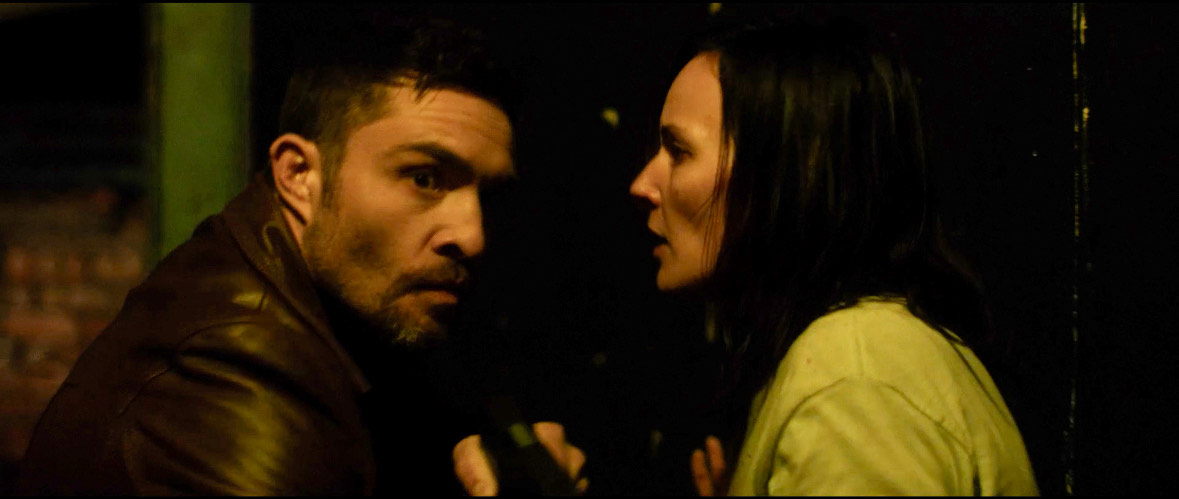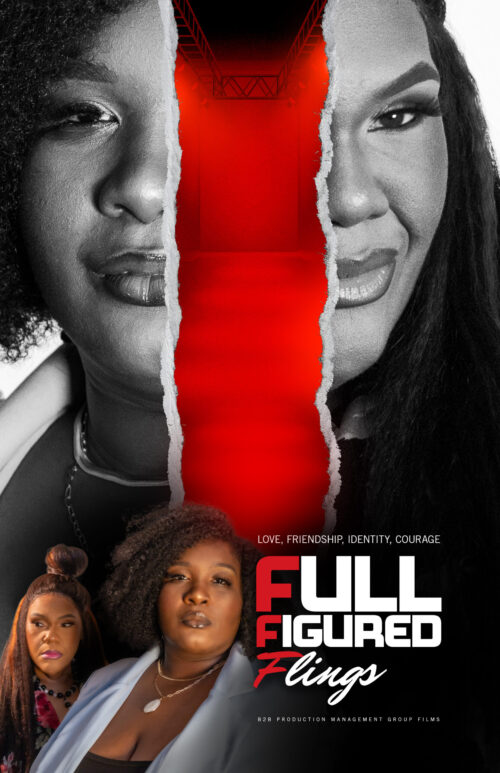We Speak Actors
Natalya Tsvetkova starring opposite Ed Westwick in upcoming “DarkGame’

Natalya Tsvetkova is a Russian born actress and producer who plays one of the lead roles in the upcoming movie ‘DarkGame’. She is acting opposite well known ‘Gossip Girl’ TV series star Ed Westwick. DarkGame is a dark thriller. DarkGame is out in the US on Feb 20th on all major VOD platforms like Apple, Amazon, and is being released in the UK in late March (date TBC), with other countries following on or around then too.
Natalya, can you please tell us about your beginnings in the film industry and best projects to date?
I am an actress and producer based in the UK. Originally from Yekaterinburg in Russia, I spent 10 years in Moscow pursuing my career ambitions, prior to making the move to England.
My love for film began at an early age. Even as a child I was experimenting with video cameras and making short movies with my sisters.
“Even though I went on to study Law at University, it was clear to me that cinema, and especially acting, was my true calling.”
I also knew I wanted to develop my acting and language skills so I could eventually work on English language films. I grew up watching all these amazing films that fired my imagination, and I knew I wanted to achieve something similar for my life.
During my time in Moscow, I kept building on my experience, attending acting classes and splitting my time working as an actress with producing commercials and helping organise an annual film festival in Rostov. While in Moscow, I was cast in numerous TV commercials, I also had a lead role in an eight-episode TV series, Moscow Decameron, and appeared in the award-winning feature film Conference, as well as producing and taking lead roles in short films such as Texting Life, Theatre Not For Everyone, Never Believe.

Pursuing my dream to work in English language film and TV, I spent some time in the US, attending acting classes there and appearing in short films (The Enforcer, Shadow). This led to opportunities to work behind the scenes on some English language projects, the feature film “Becoming” and TV series “The Pact”, which also led to me being cast in a role in that series.
More recently, I appear as one of the leads in Brief Encounters, a multinational feature film that weaves four stories together. I produced the Russian set part of the story, and am one of the leads, playing opposite Louis Mandylor. The final chapter is being filmed this spring and the film will be released towards the end of 2024.
You are one of the lead actresses of the upcoming film ‘DarkGame’. Can you tell us more about your work and behind the scenes experience?
In “Darkgame,” I play a Russian woman, Katya, who moved to America with her son, having escaped an abusive relationship, only to find herself in a worse situation. She is one of several people abducted and placed into a deadly reality game show.
“As one of the producers of the film, I was involved in the development of the story, so I could inject elements into the character that I wanted to explore. “
My nephew was inspiration for the character having a son of that age. It was interesting for me to play a character that had everything to live for, not just for herself but because her son had no one else. She had been through a lot but because of what she had been through she turns out to be one of the best placed to cope with the situation they are in.
The shoot was exhilarating,…and cold! The DarkGame set was as chilling as it appears on screen. The crew were amazing, bringing hot water bottles to the cast inbetween takes.
What was your experience working on set with Ed Westwick?
Ed was wonderful to work with. He was so well prepared, and he is an extremely focused actor. I was a little nervous before my first scene with him, but he’s such a professional and so relaxed that I was very at ease working with him.

Tell us about your work and projects as an executive producer?
I’ve always enjoyed producing as well as acting, I especially enjoy having input on the story and helping organise the financial part of the process, on projects that I have helped develop. Of course, being part of the producing team at this stage allows me to develop the kind of roles and characters that I think I will also enjoy playing.
Separately, I also sometimes work behind the scenes to help other films get financed, as an Executive Producer.
Who do you suggest to see the film ‘DarkGame’ and where can the audience watch the film?
DarkGame is a dark thriller rather than a horror. The film has several layers and strands to it. On the surface it is a gripping and tense thriller. Ed is the detective on the case, racing against time to uncover where these people are being held, whilst my character is the audiences viewpoint on being in the game.
But the film is also making a comment on society’s fascination with reality TV, and how social media can also sometimes be used to propagate and share peoples suffering. So I feel it has a wide audience – from fans of Squid Game to detective thrillers such as Seven.0.
Featured photo credit: Happy Hour Productions
We Speak Actors
Full-Figured Flings Teaser Nears 14K Views – Director of Photography Offers Special Father’s Day Release

Back 2 the Basics Production Management Group is proud to announce the official teaser premiere for FFF: Full-Figured Flings, a bold and unapologetic new film celebrating full-figured women and challenging the norms of beauty in Hollywood. Clocking in at just 46 seconds, the teaser doesn’t waste a moment, delivering a powerful visual and emotional punch that sets the tone for a project rooted in body positivity, size inclusivity, and cultural truth.
Premiering ahead of the 20th anniversary of Phat Girlz (2006), FFF serves as both homage and evolution. The film expands the conversation around colorism, sizeism, and shapeism, spotlighting women who have often been cast aside, sidelined, or silenced.

“This teaser is more than a preview—it’s a declaration,” said Lillie Mae Jones, creator and producer. “FFF is our love letter to the women who’ve never been centered but have always been essential. We’re not just telling stories—we’re shifting the lens.”
FFF: Full-Figured Flings is currently in development as a non-union independent production, with plans to release in 2026. The film invites audiences and allies to follow, support, and amplify the message through community engagement, open casting calls, and creative collaborations—including the launch of a nationwide call for a “Big Girl Anthem” to serve as the film’s official theme song.


Accept the Challenge…
The buzz is building fast around the highly anticipated full-figured fashion experience FFF, and now there’s a challenge on the table that fans won’t want to miss.
After racking up 11,000 views in less than 10 days, the official teaser video for FFF on YouTube is quickly gaining momentum. And now, the film’s Director of Photography, Dominique Perry, has thrown down a bold offer:
“If we hit 20,000 views before Saturday, June 14th, I’ll drop an exclusive second teaser on Father’s Day.”
This is more than a film—it’s a movement. FFF is a high-fashion, high-impact visual celebration of full-figured women taking a stand for representation, inclusion, and power on and off the runway.
Here’s how you can help make it happen: Watch the teaser now on YouTube. Like, comment, and subscribe. Share it with your community and post why YOU stand in solidarity with full-figured women
Watch here for a taste of the boldness, beauty, and energy
-

 We Speak Soccer7 days ago
We Speak Soccer7 days agoNo Entry Allowed: How Austin Fortner Is Becoming a Standout Keeper with Confidence and Control
-

 We Speak Football1 week ago
We Speak Football1 week agoFrom Snap to Touchdown: How Niah Reyes Plays the Game with Heart and Hustle
-

 We Speak Coaches1 week ago
We Speak Coaches1 week agoCoach of Culture, Heart of a Movement: The Extraordinary Journey of Daniel Moore, Pioneer of Women’s Flag Football and Builder of Young Lives
-

 We Speak Soccer2 days ago
We Speak Soccer2 days agoFrom Small Steps to Big Goals: How Alianna-Reyne Basa Became a Fearless Striker with a Champion’s Heart

